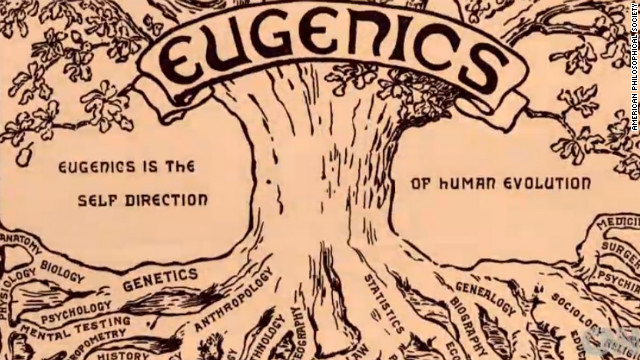Beyond 2-3; Premonition 8 Midterm report presentations begin (2 presentations per class beginning FEB 15, on the general theme of public health/pandemic etc.)...
Premonition
1. What was sometimes as persuasive to Charity as data? Do you share her attitude, have you had a similar experience? Do you think health care providers and public health officers should?
2. Who sent Charity to the border, and why? Should the administration have been held accountable for its immigration policy?
3. What was "the money question"?
4. Why wasn't Charity promoted to top CA public health officer? Is it unethical for politicians to appoint important officials on the basis of considerations other than credentials and competence? How can they be prevented from doing so?
5. What was Charity really doing at her whiteboard?
6. Why did her boss ban her from using the word pandemic?
7. Why did Charity think she'd end up in the White House?
8. What did she like to say about leadership?
Beyond 2-3
1. What kind of "motherhood" did Indiana officially promote in the '20s and '30s?
2. What was every child's right, in Indiana?
3. What dismaying transfer of power did Ada Schweitzer inadvertently facilitate?
4. What led to the "exponential" expansion of the Infant and Child Hygiene division?
5. What did Schweitzer call the Better Baby Contest at the fair?
6. Half of what occurred in California before WWII?
7. What role was played by corporate philanthropies and academics in the promotion of eugenics?
8. What happened in Lincoln, IL?
9. What was Hitler's "bible"?
10. How did California eugenicists re-brand themselves after the war?
DQs
- Is there an appropriate role for the state in promoting or mandating particular approaches to parenting?
- How would you articulate children's rights? Would you, for instance, include a right "to be brought up in the fear and admonition of the Lord"? (compare: Indiana child creed, Geneva Declaration of the Rights of the Child, Timeline of young people's rights...)
- Were the Suffragists wrong to "link the language of biology and bacteriology"? 35
- Are there enough female pediatricians? What difference does a physician's gender make?
- Is there still a marked division in this country between the "male medical establishment" and women in healthcare? (40)
- Is there any inoffensive way of expressing and defending the impulse to "raise better babies"?
- What do you think of Schweitzer's statement to "a Muncie reformer" (43)?
- How would you caption the photo in Figure 2.1 (46)?
- Was Francis Galton wrong about "talented people" (54)?
- Are you shocked to learn of the "lethal chamber"?

(DQ) Is there still a marked division in this country between the "male medical establishment" and women in healthcare?
ReplyDeleteI think there will always be a division like this in healthcare as long as we uphold people that committed crimes against women in the name of medicine (see Marion Sims). I feel like there's this preconceived idea that women are better able to handle pain and are afforded less comfort because of that. One example that comes to my mind is the difference in anesthesia use when it comes to colonoscopies and IUD implantation. Patients (males and females) undergo anesthesia during a colonoscopy, but during IUD implantation, the patients (females) are kept awake and alert. Historically this idea goes a little deeper and has played a large role in the evolution of misogyny; examples include labelling mentally ill women as hysterical, refusing sterility treatments to younger women, and holding mothers to a higher standard of care than fathers.
I've never heard that preconception about women and pain. Where does it come from?
DeleteI agree with what you said. The way younger women are refused sterility treatments and given reasons such as "their husband might want kids" or "they might change their mind one day" is truly appalling. Many women who suffer from issues such as endometriosis are never offered the option of sterilization when they are willing to do it just because of misogynistic reasons where their value in society is reduced to their ability to produce a child alone.
Delete2. What was every child's right, in Indiana?
ReplyDeleteRight to be born free from disease/deformity and with pure blood in its veins and arteries.
Half of what occurred in California before WWII?
Half of coercive sterilizations
2. Who sent Charity to the border, and why? Should the administration have been held accountable for its immigration policy?
ReplyDeleteJerry Brown
3. What was "the money question"?
“Where are you from?”
7. Why did Charity think she'd end up in the White House?
ReplyDeleteCharity felt like it was her purpose to "fight battles, and wars, against disease," and sensed something big was coming. Charity thought she'd end up in the White House because she felt obligated/called to "fix this". I suppose the "this" could mean specifically pandemics.
6. Why did her boss ban her from using the word pandemic?
ReplyDeleteIt was because her boss thought Charity was scaring people with that word.
ReplyDelete9. What was Hitler's "bible"?
Hitler's bible was 'The passing of the great race'.
1. What kind of "motherhood" did Indiana officially promote in the '20s and '30s?
ReplyDelete"Progressive maternalism" was popular, which asserted that the biological and social experience of motherhood endowed mothers with a heightened sense of moral duty that was beneficial to both family and nation.
6. Half of what occurred in California before WWII?
ReplyDeleteNearly half of all coercive sterilizations were done in California.
8. What happened in Lincoln, IL?
ReplyDeleteOne institution fed its incoming patients milk from tubercular cows believing a eugenically strong individual would be immune.